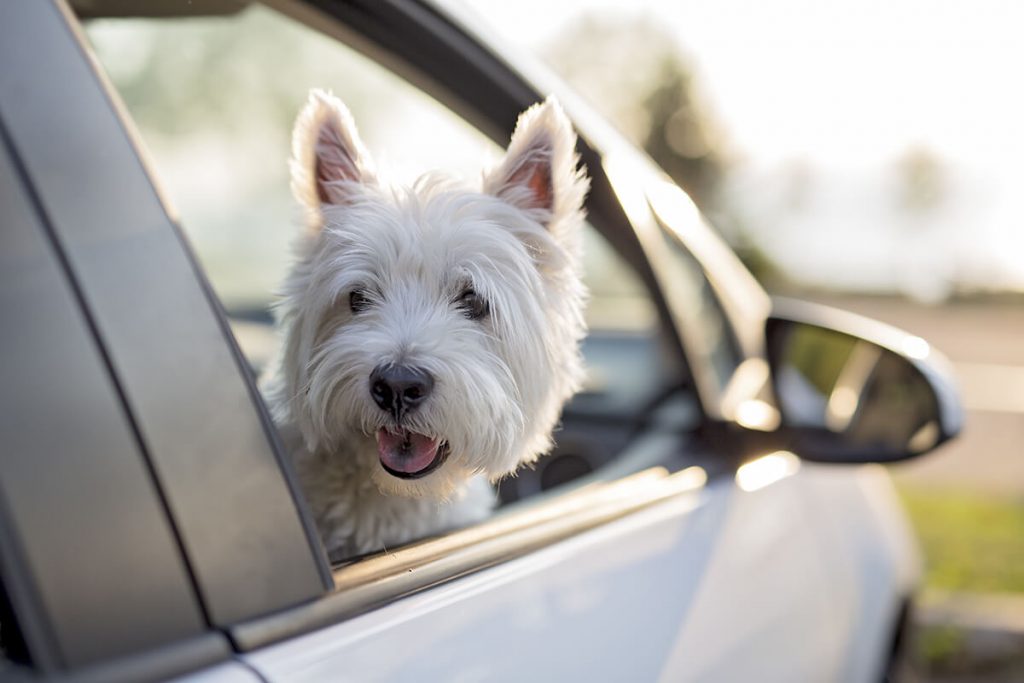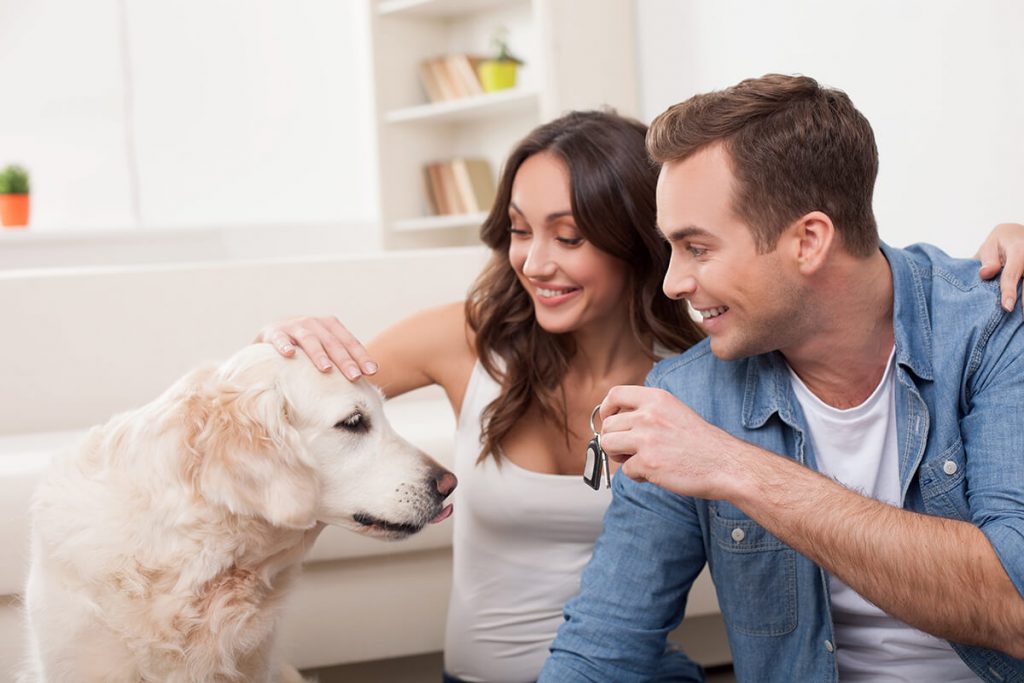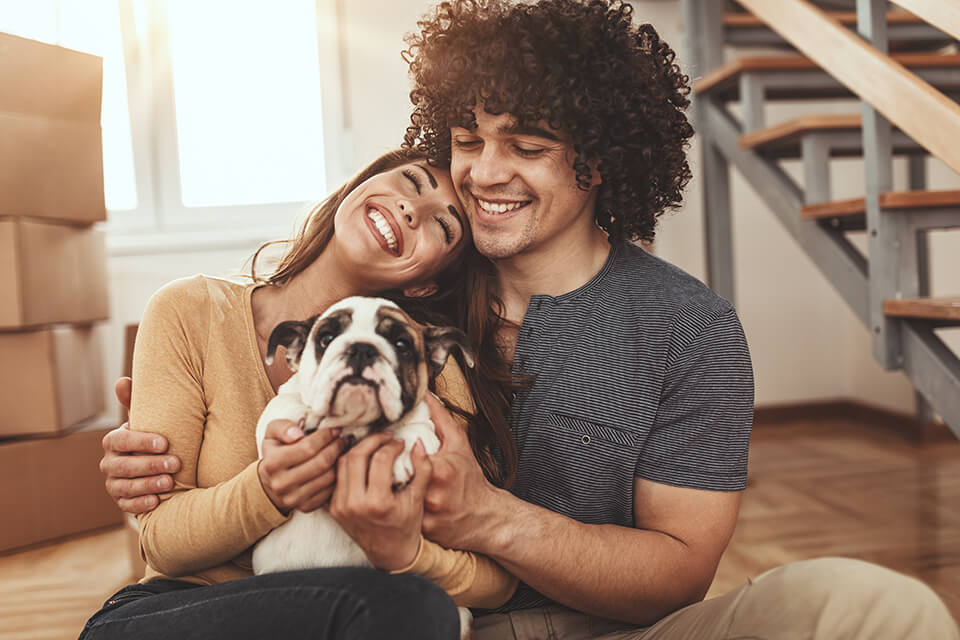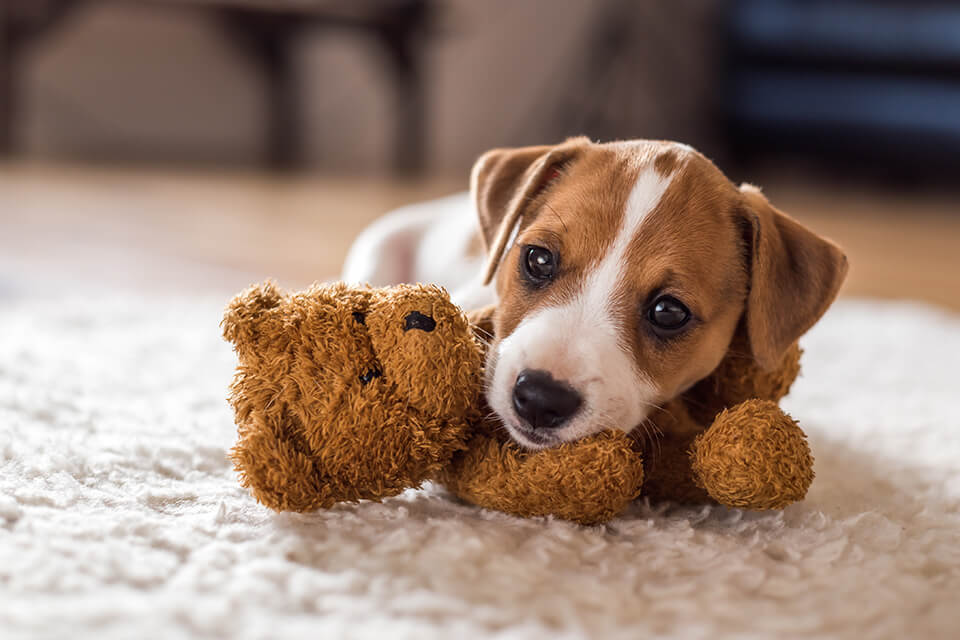Wondering How to Calm a Dog for Grooming? Here Are 3 Ways You Should Try
Regular grooming is essential to the wellbeing of your dog, but what should you do if your pup gets too nervous and agitated? How to calm a dog for grooming is a concern of many people, not just for the sake of their beloved animal but theirs and their groomers as well. Luckily, there are plenty of tips and tricks on how to minimize their anxiety and help them feel relaxed during these beauty treatments that are so essential to their overall health, physical as well as emotional.

With our words of advice, you’ll find out how to take preventive measures to address your dog’s anxiety before it turns into aggression. Take a look at some of the most effective methods you can use to soothe your furry friend and make the process enjoyable for all parties involved.

#1 How to Calm a Dog for Grooming – Incorporate the Necessary Equipment Into Your Pet’s Routine
Whether your pet is a puppy or a senior, one thing is for sure – the nearness of any grooming equipment may cause panic and fear. However, dealing with the most sensitive areas, such as snout, eyes, ears, or paws, could be easier if you have a younger animal. Keep in mind that dogs cherish their routine, and everything unusual or out of the ordinary may lead to odd behavior and lots of worries. Fortunately, these obstacles can be conquered. Keep reading and find out what methods to use to overcome your pet’s fears.
Get Your Dog Used to the Unfamiliar Sensations
Your furry friend should become familiar with the equipment, including its smell, touch, and sound. Whether your beloved companion gets its treatments at home or you visit a professional groomer, reducing the anxiety and creating positive associations is the key to a dog’s calmness and acceptance of the whole process. Here are several steps you should apply day-to-day in order to get your canine accustomed to the process as soon as possible:
- Start by brushing or combing every day at home – they may even start to like the feeling after several days, especially if you’re generous with treats
- Touch their paws and get them used to nail cutting
- Roll a damp washcloth over them
- Touch their backside with hair clippers gently and help get them used to the sensation
Of course, after periods of adjustment, it’s good to give your dog a treat and spend some time playing together.
Dryers Might Cause Anxiety in Dogs
One more thing you should keep in mind is the sound of a hairdryer. You probably don’t pay attention to it, but a pup may not be a huge fan of this annoying sound. This is especially true for those animals that are afraid of any loud noises, such as thunderstorms or fireworks. To reduce noise-related stress, try using the drier around them for some time to make them less sensitive and disturbed by the sound.
Additional Step – Counter-Conditioning
With counter-conditioning, you train your companion to display a behavior that is different than the existing response to strange stimuli such as combing, brushing, trimming, or bathing. It usually includes the process of desensitization or exposing your dog to a stimulus at a very low level. To complete this process successfully, you should follow these instructions:
- Go slowly
- Think of ways to make your pet’s reactions less intense
- Help your dog associate good things with the situation (rather than bad things), such as small pieces of food, toys, petting, praise, etc.
- Don’t move further until your pup is ready and anticipates the reinforcement
- Progress slowly and consult your vet or animal behaviorist about modification programs

# 2 Turn Car Rides Into a Positive Experience
Even if your pet likes being combed and pampered, it may get anxious about the ride to the groomer. Simply put, placing your pup into the car could be a trigger for stress, since they know that car riding precedes grooming, or even worse, a visit to the vet. Besides, motion sickness may be one of the reasons for strange behavior.
If you don’t have a clue how to handle this issue, don’t worry – we’ve put together some tips to facilitate the process of getting to your groomer.
Veterinary Tips
If your pooch has stomach issues during the ride, then you should talk to your veterinarian about medications that will mitigate symptoms related to nausea. But, when it comes to more severe problems, such as anxiety and panic attacks, your vet should give you directions on proper drug dosage and possible side effects. Make sure to use over-the-counter tranquilizers only when absolutely necessary, since they can worsen the symptoms in some dogs.
So, here are some other solutions you should consider:
- Behavior modification
- Heavy sedation to fall asleep
- You can learn to groom your pup at home or entertain the idea of mobile grooming services

# 3 Your Pet Might Need Training Visits and Food Rewards
If a salon is your choice, you should start taking your furry friend to the “scene of the crime” as often as possible just to observe. It could be the best introduction to the process because it entails adaptation to sounds, smells, and sights. Also, your pup should have extra time to become close with their prospective groomer. If your companion is extra nervous, using some calming, natural products could be a good choice to reduce hyperactivity. At the end of each training visit, you should reward them with their favorite treat.
Separation Could Be Beneficial
Some owners don’t want to leave their pooch, thinking that staying and talking baby talk to them will help reduce the anxiety. Actually, that can increase the stress both for the animal and the owner. So, if you’re wondering how to calm a dog for brushing, hand your pet over to the groomer without too much fuss, give a cheerful goodbye, and leave without turning back. Of course, this stage requires time. But, be sure that amicable separation is achievable, and thanks to anxiety-reducing solutions, grooming can become more enjoyable for everyone.

Groomed Dogs = Happy and Healthy Dogs
Perhaps your dog looks unhappy and confused before stepping over the salon’s threshold, but one thing is for sure – your pet will leave the groomer looking fabulous and feeling just as good. It’s needless to say that regular treatments are beneficial both for your pup’s physical health and emotional wellbeing. That being said, despite the drama before the treatment, the effort spent on beautification is well worth it.
As time goes by, the whole process will be less stressful, and your pup will be less annoyed and scared. They might even grow to like being pampered by the groomer. This could give you some spare moments to do something else for yourself, and you can rest assured that your furry friend is receiving the best possible treatment.